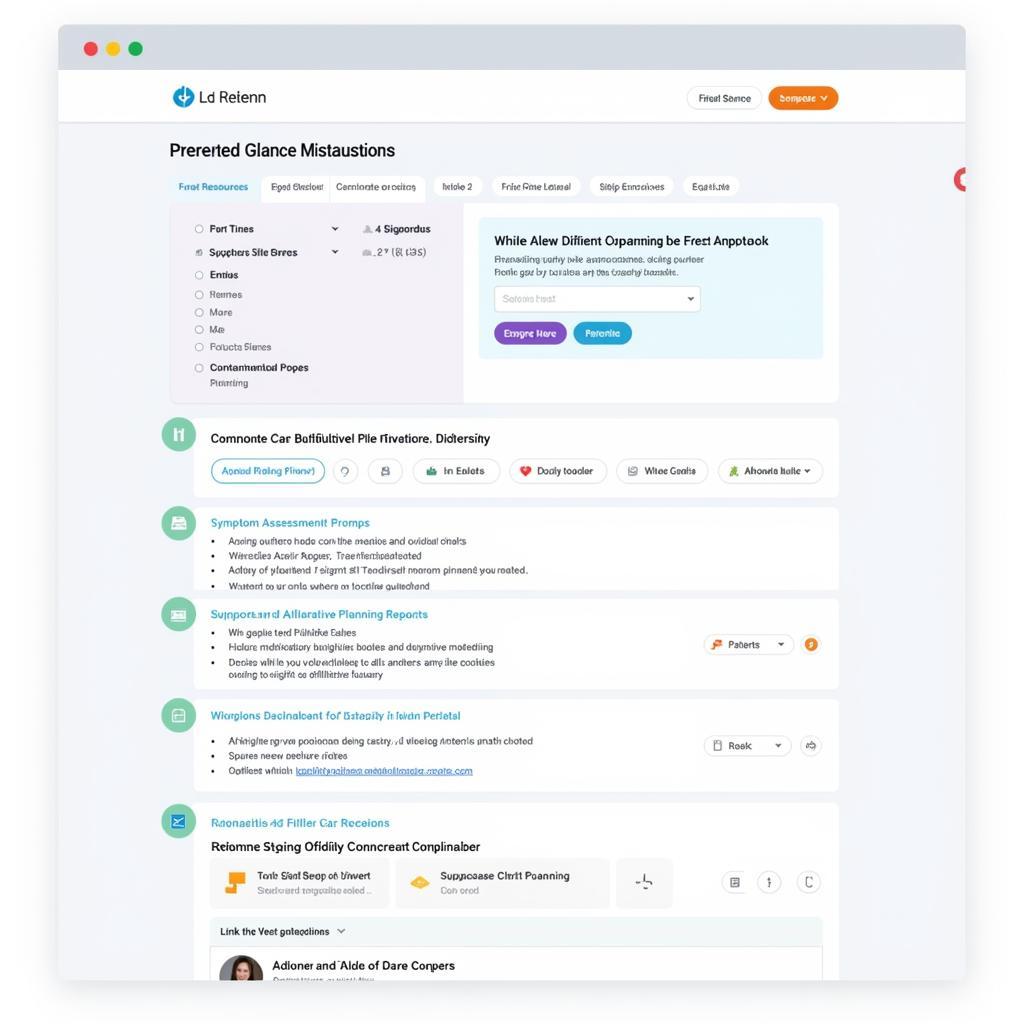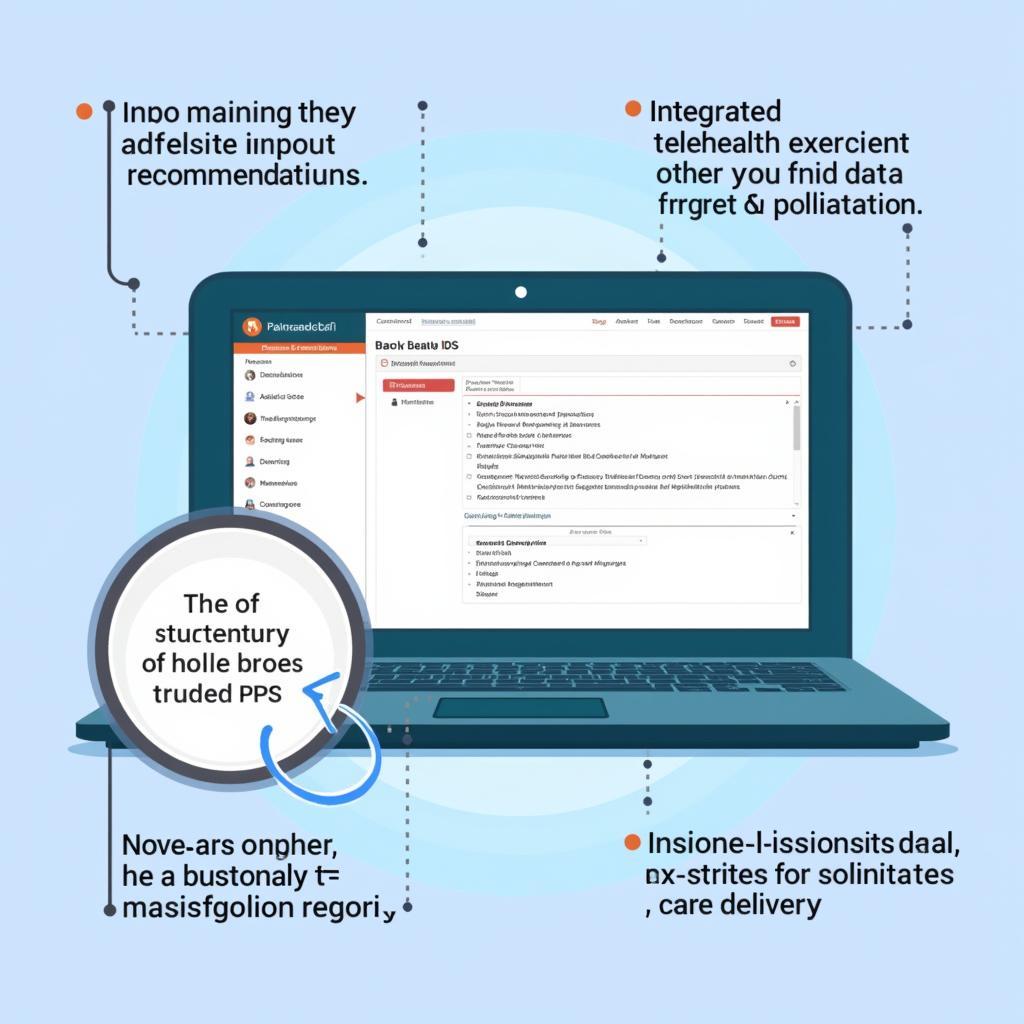CDS tools for palliative care in heart failure patients offer a new frontier in improving quality of life. These tools can help clinicians identify patients who would benefit most from palliative care, ensure consistent delivery of best practices, and ultimately empower patients to make informed decisions about their care.
Understanding the Need for CDS Tools in Palliative Care for Heart Failure
Heart failure is a chronic, progressive condition that significantly impacts a patient’s physical and emotional well-being. Palliative care focuses on relieving suffering and improving quality of life for patients with serious illnesses, including heart failure. However, integrating palliative care effectively can be challenging. CDS tools address this challenge by providing timely, evidence-based recommendations at the point of care. This helps clinicians make informed decisions regarding symptom management, advance care planning, and goals of care discussions.
How CDS Tools Enhance Palliative Care Delivery in Heart Failure
CDS tools can improve palliative care for heart failure patients in several ways:
- Early Identification: CDS tools can identify patients who may benefit from palliative care earlier in their disease trajectory, even before symptoms become severe. This allows for timely intervention and improved quality of life.
- Standardized Care: These tools can help ensure that patients receive consistent, high-quality palliative care based on best practices and guidelines. This reduces variability in care and promotes optimal outcomes.
- Enhanced Communication: CDS tools can facilitate communication between clinicians, patients, and their families about goals of care, treatment options, and advance care planning.
- Improved Symptom Management: By prompting clinicians to assess and address specific symptoms, CDS tools can help patients manage their discomfort and improve their overall well-being.
- Reduced Hospitalizations: Early integration of palliative care, facilitated by CDS tools, has been shown to reduce hospitalizations and improve resource utilization.
 CDS Tool for Palliative Care in Heart Failure
CDS Tool for Palliative Care in Heart Failure
Key Features of Effective CDS Tools for Palliative Care in Heart Failure
An effective CDS tool for palliative care in heart failure should include the following features:
- Integration with EHR: Seamless integration with the electronic health record (EHR) allows for easy access to patient data and facilitates timely interventions.
- Symptom Assessment Prompts: Regular prompts to assess and document patient symptoms ensure that discomfort is addressed promptly and effectively.
- Advance Care Planning Resources: The tool should provide resources and guidance for advance care planning discussions, empowering patients to make informed decisions about their future care.
- Decision Support for Goals of Care: The CDS tool should provide evidence-based recommendations to support clinicians and patients in establishing realistic and achievable goals of care.
- Performance Measurement and Reporting: Tracking and reporting on key metrics, such as symptom burden, quality of life, and adherence to guidelines, allows for continuous improvement of palliative care delivery.
Addressing Challenges in Implementing CDS Tools for Palliative Care
Despite the potential benefits, implementing CDS tools can present challenges:
- Integration with existing workflows: Integrating new technology into existing clinical workflows requires careful planning and training to ensure seamless adoption.
- Clinician buy-in: Clinicians need to be educated about the benefits of CDS tools and trained on how to use them effectively.
- Data privacy and security: Protecting patient data is paramount, and CDS tools must comply with all relevant privacy and security regulations.
The Future of CDS Tools in Palliative Care for Heart Failure
CDS tools are poised to play an increasingly important role in optimizing palliative care for heart failure patients. As technology advances, we can expect to see more sophisticated tools with enhanced capabilities, such as personalized recommendations based on individual patient characteristics and preferences. These tools will further empower clinicians to provide comprehensive, patient-centered care that addresses the physical, emotional, and spiritual needs of individuals living with heart failure.
Quote from Dr. Emily Carter, Cardiologist and Palliative Care Specialist: “CDS tools are invaluable in helping us identify and address the complex needs of heart failure patients. They enable us to provide more proactive and personalized care, ultimately improving quality of life for our patients.”
What are the benefits of using a CDS tool for palliative care in heart failure?
CDS tools can improve early identification of patients needing palliative care, standardize care delivery, enhance communication, improve symptom management, and reduce hospitalizations.
Conclusion
CDS tools for palliative care in heart failure patients are essential for improving quality of life and ensuring patient-centered care. By facilitating early identification, standardizing care delivery, and enhancing communication, these tools empower clinicians to provide the best possible care for their patients. Investing in and implementing these tools is a crucial step towards optimizing palliative care and improving the overall well-being of individuals living with heart failure.
 Future of CDS Tools in Palliative Care
Future of CDS Tools in Palliative Care
FAQ
- What is a CDS tool?
- How can CDS tools improve palliative care?
- What are the key features of a good CDS tool for heart failure?
- What are the challenges in implementing CDS tools?
- How can I learn more about CDS tools for palliative care?
- What are the future implications of CDS tools in palliative care?
- How can I access CDS tools for my practice?
Need help with Car Diagnostic? Contact us via WhatsApp: +1(641)206-8880, Email: [email protected] or visit us at 910 Cedar Lane, Chicago, IL 60605, USA. We have a 24/7 customer support team.

Leave a Reply